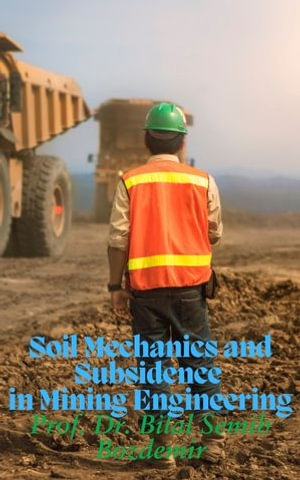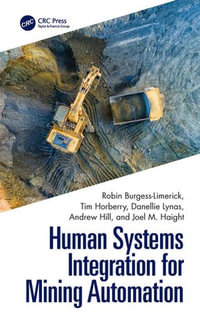
eBOOK
Soil Mechanics and Subsidence in Mining Engineering
eBook | 23 January 2025
At a Glance
eBook
$15.40
OR
Free with Kobo Plus Read
Start Free Trial *- Subscribe and read all you want.
- $13.99 a month after free trial. Cancel Anytime. Learn more.
Instant Digital Delivery to your Booktopia Reader App
Read on
7.6.1 Environmental Factors
Variable climate and geological conditions may hinder the accuracy of monitoring techniques. Extreme weather events, such as heavy rainfall or freezing temperatures, can obstruct measurements and interfere with data collection. Additionally, the presence of vegetation or urbanization can complicate monitoring efforts, particularly in remote locations where access to infrastructure is limited.
7.6.2 Data Interpretation
The interpretation of monitoring data is subject to uncertainties arising from methodological limitations, assumptions made during analysis, and the inherent variability of geological materials. Consequently, engineers must exercise caution in decision-making and consider multiple sources of information to minimize the risk of misinterpretation.
7.6.3 Resource Constraints
Financial and human resource limitations may impede the installation and maintenance of monitoring systems. While technological advancements have lowered the costs of some techniques, comprehensive monitoring schemes often require substantial investment, which may not be feasible in all mining operations. Commitment to regular maintenance and staff training is essential to ensure accurate and reliable monitoring outcomes.
7.7 Future Trends in Subsidence Monitoring
As the mining sector continues to embrace technological advancements, future trends in subsidence monitoring are expected to evolve significantly. Innovations in sensing technologies, such as the potential deployment of unmanned aerial vehicles (UAVs) equipped with high-resolution cameras and sensors, will enhance subsidence detection capabilities. Furthermore, cloud computing and enhanced connectivity will facilitate real-time analysis of monitoring data across integrated environments, leading to quicker assessment and response actions.
Additionally, the ongoing development of machine learning and artificial intelligence may allow for the evolution of predictive monitoring systems that not only detect subsidence but also provide forecasts and automated alerts regarding potential hazardous conditions. Such advancements will revolutionize the approach to subsidence monitoring, contributing to improved safety protocols and overall mining health.
Read on
ISBN: 6610000710072
Published: 23rd January 2025
Format: ePUB
Language: English
Publisher: PublishDrive























